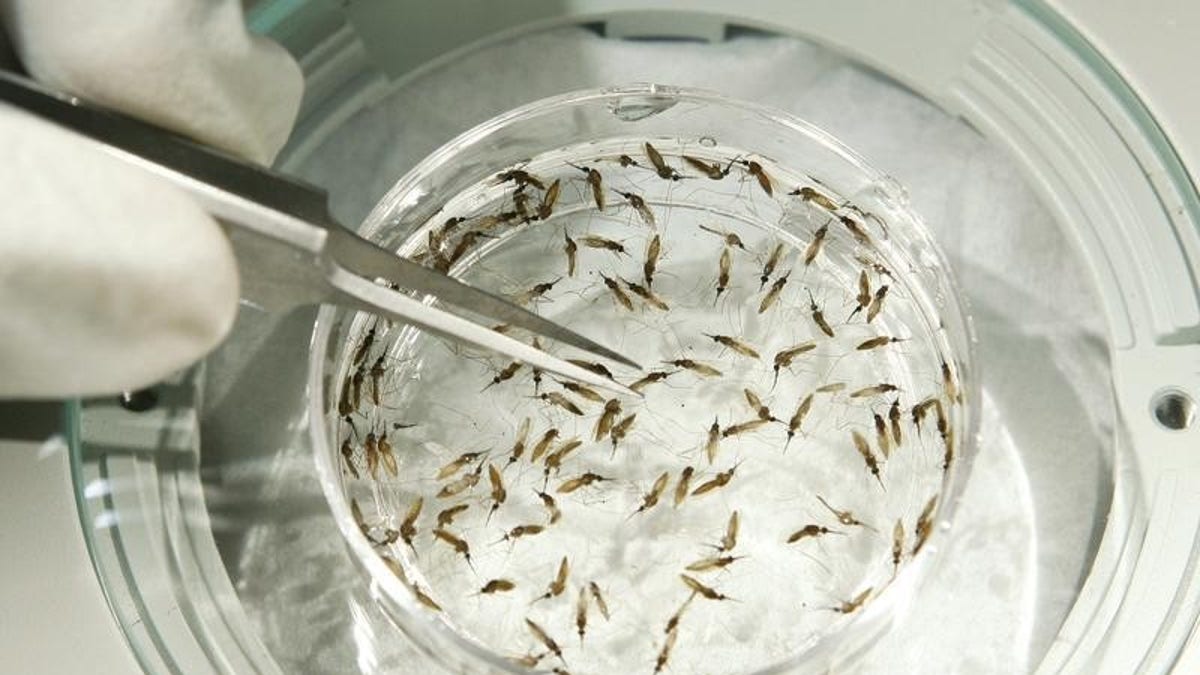
Worker Solomon Conteh picks up a mosquito at Sanaria Inc. facility in Rockville, Maryland, October 26, 2007. REUTERS/Jim Young (Copyright Reuters 2015)
LONDON — African governments are confident malaria can be wiped out within 15 years as research innovations, including a vaccine against the disease, are developed and tested, the African Leaders Malaria Alliance (ALMA) said.
The continent has made good progress in fighting the mosquito-transmitted disease in recent decades, slashing death rates by 66 percent overall since 2000. However Africa remains the world's worst affected region, accounting for 88 percent of new cases and 90 percent of deaths.
In 2015, about 188 million Africans contracted malaria and 395,000 died of it - most of them children under five, according to the alliance dedicated to ending malaria deaths in Africa.
Last week, the African Union adopted a roadmap to eradicate the disease by 2030 following the lead of the United Nations which has set ending malaria epidemics as one of its Sustainable Development Goals for 2030.
ALMA's executive secretary, Joy Phumaphi, said African leaders were "relatively comfortable" the target could be reached as a number of new anti-malaria products were expected to be marketed in the next five to 10 years.
"We have new vaccine, we have a new treatment for malaria, we have new insecticides," Phumaphi told the Thomson Reuters Foundation in an interview late on Wednesday.
"There is no reason why using all of these innovations when they become available we should not be able to control malaria."
Currently there are more than 30 malaria vaccines under development. Last year the Mosquirix vaccine, became the first to win regulatory approval from the European Medicines Agency, but studies say its efficacy is limited.
A drug able to wipe out all parasites in the body with a single dose could also become available by 2019, according to the Bill & Melinda Gates Foundation.
Researchers are also working on new insecticides used to spray inside homes and in bed nets, as mosquitoes have grown resistant to those already available.
INVESTMENT
Technology alone is not enough to beat malaria. Governments also need to tackle corruption and reform their healthcare systems to ensure resources are managed efficiently, Phumaphi said.
Member countries of ALMA, which comprises 49 of Africa's 54 states, could do more to cut costs by regularly teaming up to place bulk orders of equipment and medications, she added.
Finally, for the 2030 goal to be reached, African nations and the international community must keep up their investments in research, treatment and prevention, Phumaphi said.
Global spending on malaria currently stands at $2.7 billion a year. To achieve a target of a 90 percent cut in malaria cases by 2030, spending will need to rise to $8.7 billion a year, according to WHO.
Phumaphi said she hoped the next U.S. administration would match current levels of investment.
Washington is the biggest donor to the Global Fund to Fight AIDS, Tuberculosis and Malaria, having contributed almost $11 billions since 2002.
Returns are high as malaria eradication could unlock $2 trillion in economic benefits by 2040 from a healthy, more productive workforce and health systems that are less burdened by the disease, according to the United Nations.
"It's a very good area to invest," Phumaphi said.
